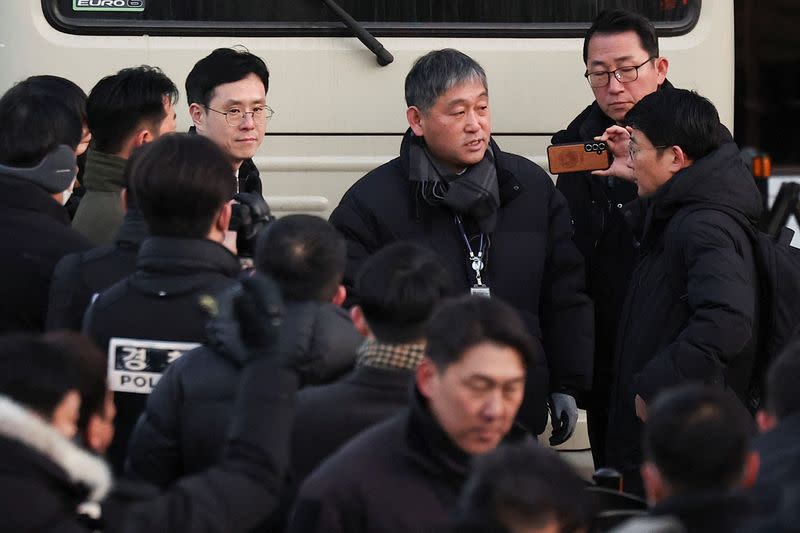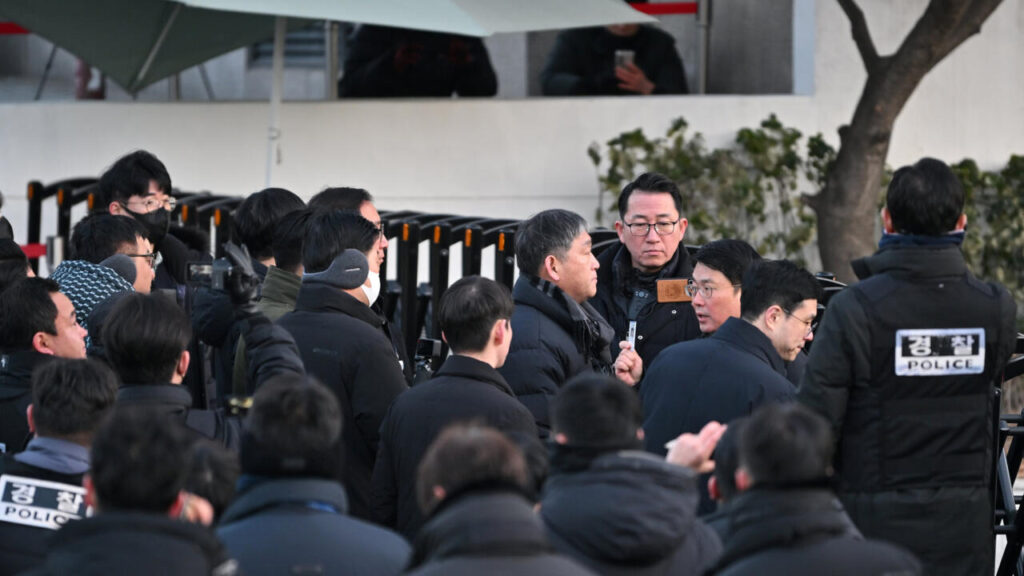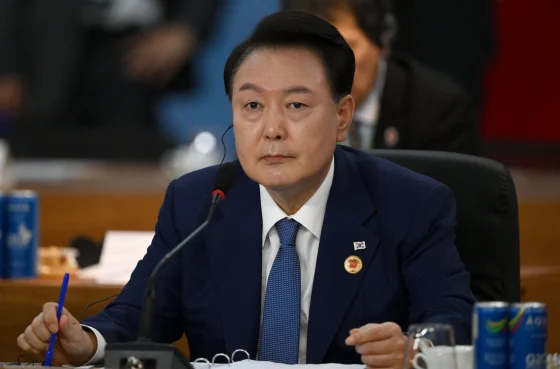South Korean authorities entered the compound of impeached President Yoon Suk Yeol on Friday in an attempt to execute an unprecedented arrest warrant, sparking tensions with presidential security forces and a large crowd of protesters.

The Corruption Investigation Office for High-ranking Officials (CIO), leading a joint investigative team with police and prosecutors, arrived at Yoon’s residence at approximately 7 a.m. local time (2200 GMT Thursday), Reuters reported. Their efforts were initially stalled by vehicles blocking the driveway and resistance from the Presidential Security Service (PSS).
Yoon, under criminal investigation for insurrection following his December 3 martial law attempt, faces allegations that have sent shockwaves through South Korea, one of Asia’s leading democracies. If arrested, he would become the first sitting South Korean president to face such a fate.
Inside the compound, CIO investigators were confronted by PSS personnel and military troops assigned to presidential security, media outlets reported. The Ministry of National Defense confirmed that the troops were acting under PSS command.
Protests erupted outside the residence in the early hours, with numbers swelling into the hundreds as news spread of the planned arrest. Demonstrators vowed to protect Yoon, chanting, “President Yoon Suk Yeol will be protected by the people.”

Pyeong In-su, a 74-year-old protester, expressed hope that U.S. President-elect Donald Trump would intervene to support Yoon, referring to him as a “patriotic citizen.”
Yoon’s lawyer denounced the arrest warrant as unlawful, stating that the CIO lacked the legal authority to pursue it. The warrant, valid until January 6, allows investigators to detain Yoon for up to 48 hours before deciding whether to seek a detention warrant or release him.
On December 3, Yoon declared martial law in an unexpected late-night announcement, citing a need to address political deadlock and “anti-state forces.” However, the move was swiftly overturned when 190 lawmakers convened and voted against the decree, leading Yoon to rescind his order just six hours later.

The martial law declaration and its aftermath have led to significant legal consequences. Kim Yong-hyun, Yoon’s former defense minister who played a key role in the decree, was detained and indicted last week on charges of insurrection and abuse of power.
Yoon’s impeachment, which took effect on December 14, has left him isolated. His impeachment case is currently under review by the Constitutional Court, with a second hearing scheduled later on Friday.
If arrested, Yoon is expected to be held at the Seoul Detention Center, according to Yonhap News Agency. Investigations into the insurrection charges continue, with Yoon’s legal team maintaining that the arrest warrant is invalid.
Reuters



